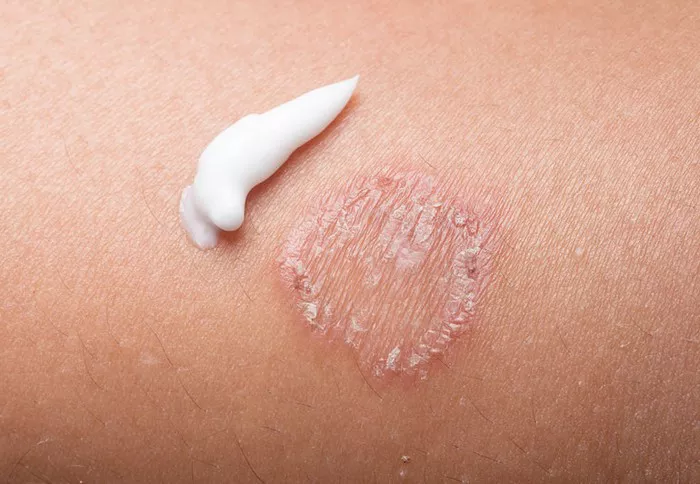Vitiligo, a skin condition characterized by the loss of pigment, affects millions worldwide, impacting individuals of all ages, genders, and ethnicities. Among its various manifestations, mucosal vitiligo stands out due to its distinct presentation on mucous membranes such as the lips, genitalia, and oral cavity. While vitiligo itself can provoke significant concern and uncertainty, the presence of mucosal involvement often intensifies these feelings, raising questions about the condition’s progression and potential spread.
In this comprehensive article, we delve into the intricacies of mucosal vitiligo, addressing common misconceptions and providing clarity on whether this particular form of the disorder spreads. By understanding the underlying mechanisms, exploring relevant research findings, and drawing upon expert insights, we aim to equip readers with accurate information to better navigate their journey with vitiligo.
Understanding Vitiligo: A Brief Overview
Before delving into the specifics of mucosal vitiligo, it is essential to grasp the fundamentals of the condition as a whole. Vitiligo results from the destruction of melanocytes, the cells responsible for producing melanin, the pigment that gives color to the skin, hair, and eyes. Without melanocytes, affected areas develop depigmentation, leading to the characteristic white patches associated with vitiligo.
While the exact cause of vitiligo remains elusive, it is widely believed to involve a combination of genetic, autoimmune, and environmental factors. Autoimmunity, in particular, plays a significant role, with the immune system mistakenly targeting and attacking melanocytes.
The Unique Nature of Mucosal Vitiligo
Mucosal vitiligo represents a distinctive subset of the disorder, characterized by depigmentation specifically affecting mucous membranes. Unlike cutaneous vitiligo, which primarily manifests on the skin, mucosal involvement introduces additional complexities due to the delicate nature of the affected tissues.
Common sites of mucosal vitiligo include the lips, particularly the vermilion border, as well as the genitalia and oral cavity. These areas exhibit mucous membranes that differ structurally and functionally from the skin, posing unique challenges in terms of management and prognosis.
Dispelling Misconceptions: Does Mucosal Vitiligo Spread?
One of the most pervasive misconceptions surrounding mucosal vitiligo is the belief that it inherently spreads more rapidly or extensively compared to its cutaneous counterpart. However, empirical evidence and clinical observations suggest otherwise.
Research studies examining the progression of mucosal vitiligo have consistently demonstrated that its spread follows patterns similar to those observed in cutaneous vitiligo. Rather than spreading uncontrollably or accelerating in pace, the expansion of depigmented areas tends to occur gradually and sporadically over time.
Moreover, the notion that mucosal vitiligo spreads more aggressively fails to account for the influence of various factors, including treatment interventions, individual differences in disease activity, and environmental triggers. While certain triggers such as trauma or inflammation may exacerbate vitiligo activity, there is no conclusive evidence to support the idea that mucosal involvement inherently predisposes individuals to more rapid disease progression.
Factors Influencing the Progression of Mucosal Vitiligo
To gain a more nuanced understanding of mucosal vitiligo’s progression, it is essential to consider the multitude of factors that can influence disease activity and spread. These factors encompass genetic predisposition, autoimmune dynamics, comorbidities, treatment modalities, and environmental triggers.
Genetic susceptibility plays a crucial role in determining an individual’s likelihood of developing vitiligo, including mucosal involvement. Certain genetic variants have been implicated in both familial and non-familial forms of the disorder, contributing to variations in disease severity and progression.
Autoimmune mechanisms, characterized by the aberrant targeting of melanocytes by the immune system, underpin the pathogenesis of vitiligo. In mucosal vitiligo, this autoimmune response may be directed towards melanocytes residing within mucous membranes, leading to depigmentation.
Comorbidities, such as thyroid disorders and other autoimmune conditions, can influence the course of vitiligo, potentially exacerbating disease activity. Additionally, treatment modalities ranging from topical corticosteroids to phototherapy can impact the progression of mucosal vitiligo, either by halting disease activity or promoting repigmentation.
Environmental triggers, including stress, sun exposure, and chemical irritants, may exacerbate mucosal vitiligo in susceptible individuals. However, the extent to which these factors contribute to disease progression remains subject to ongoing research and clinical investigation.
Clinical Management and Prognosis
In light of the complexities surrounding mucosal vitiligo, effective clinical management requires a multidimensional approach tailored to each patient’s unique circumstances. Dermatologists and healthcare providers play a pivotal role in guiding patients through treatment decisions, addressing concerns, and monitoring disease progression over time.
Treatment options for mucosal vitiligo encompass a range of modalities, including topical therapies, phototherapy, oral medications, and surgical interventions. Topical corticosteroids, calcineurin inhibitors, and vitamin D analogs are commonly used to reduce inflammation and promote repigmentation in affected areas.
Phototherapy, which includes narrowband ultraviolet B (NB-UVB) and excimer laser treatments, can be effective in stimulating melanocyte function and inducing repigmentation. Oral medications such as systemic corticosteroids, immunomodulators, and targeted therapies may be considered for cases of widespread or refractory mucosal vitiligo.
Surgical approaches, such as autologous melanocyte transplantation and surgical grafting techniques, offer options for localized or recalcitrant mucosal vitiligo. These procedures involve transplanting melanocytes from unaffected areas of the body to depigmented mucosal sites, thereby restoring pigment and improving cosmetic appearance.
Prognosis in mucosal vitiligo varies depending on various factors, including disease severity, treatment response, and individual patient characteristics. While some individuals may experience stable or regressive disease course with appropriate treatment, others may encounter challenges in achieving satisfactory repigmentation or controlling disease activity.
Conclusion
In conclusion, mucosal vitiligo represents a distinct manifestation of the disorder characterized by depigmentation of mucous membranes. Contrary to common misconceptions, mucosal involvement does not inherently predispose individuals to more rapid or extensive disease spread.
By understanding the underlying mechanisms, factors influencing disease progression, and available treatment modalities, patients and healthcare providers can work collaboratively to navigate the complexities of mucosal vitiligo. Through tailored treatment approaches, ongoing monitoring, and support, individuals with mucosal involvement can achieve improved quality of life and cosmetic outcomes.
Ultimately, while mucosal vitiligo may present unique challenges, it is essential to approach the condition with patience, empathy, and a commitment to comprehensive care. By dispelling misconceptions and fostering a deeper understanding of the disorder, we can empower individuals affected by mucosal vitiligo to embrace their journey with confidence and resilience.
Related Topics:
Is Morning Sunlight Good for Vitiligo



























